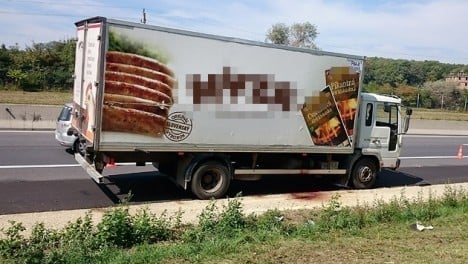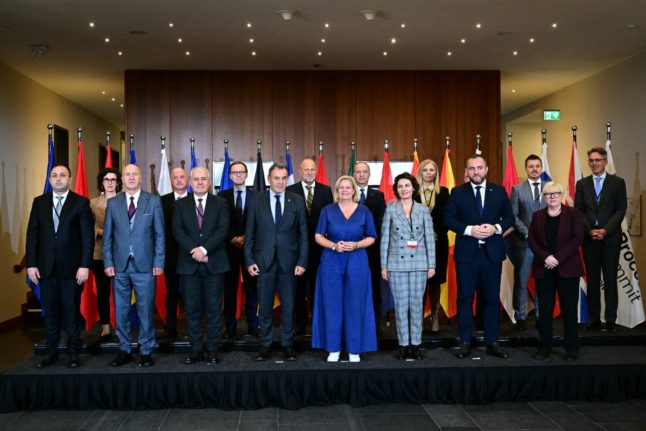“The investigation has been completed… Police will recommend to prosecutors that they press charges against eight suspects,” said Zoltan Boross, head of the police's anti-migrant trafficking unit.
In total, seven Bulgarians and an Afghan — considered the ringleader — have been remanded in custody over the gruesome tragedy.
Four are accused of manslaughter, while another four could face charges of organised human trafficking, Boross told journalists in Budapest. A further three suspects remain at large, he added.
The badly decomposing bodies of the 71 people were found inside an abandoned refrigerator truck in a layby in Burgenland state, close to the Hungarian border on August 27th, 2015.
The stench of human decay emanated from the container where bodies lay piled on top of each other, crammed into a small rectangular space. Among them was a baby girl, not even a year old.
Budapest took over the case last November, because the 59 men, eight women and four children were thought to have suffocated while the lorry was still in Hungary.
Investigations revealed that the migrants — mostly from Syria, Iraq and Afghanistan — had been picked up at Hungary's border with Serbia and transported to Austria via Budapest.
An autopsy showed they had most likely died from lack of oxygen shortly after leaving the Hungarian capital.
“The perpetrators knew by the time they crossed the Hungarian-Austrian border that the passengers were dead,” Boross said.
The case sparked international revulsion, highlighting the plight of desperate people putting their lives in the hands of traffickers.
“This was a tragic example of how ruthless the criminal gangs are,” said Robert Crepinko, the anti-smuggling chief of Europe's police agency Europol, at the press conference in Budapest. “We see a number of criminal gangs operating across Europe making their profits regardless of the risks put on migrants lives.”
The continent's worst migration crisis since World War II has turned people smuggling into a booming criminal market, generating up to €6 billion a year, according to Crepinko.
The Budapest-based ring was a professional network with more than 15 vehicles used to transport refugees who were trekking up from Greece along the western Balkans to reach western Europe.
The group had smuggled more than 1,100 people from Hungary into Austria since February 2015, charging between €1,100 and €1,500 per refugee, investigators said.
The Afghan ringleader had arrived as an asylum-seeker in Hungary in 2013 and was granted protection status.
He had Afghan helpers in Serbia — another key transit country on the Balkan migrant trail — who brought the migrants to the Hungarian border.
Of the 71 victims found in the truck, all except one have been identified. Most were repatriated to their home countries, while a dozen have been buried at a Muslim cemetery in Vienna.



 Please whitelist us to continue reading.
Please whitelist us to continue reading.